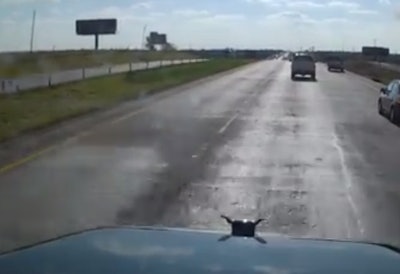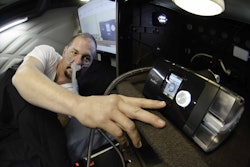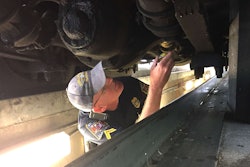
I understand having a passion for something, I really do. I’ve spent a great deal of my life being passionate about one cause or another, or having violent mood swings, it depends on who you ask. Either way, I do understand having a passion, and supporting another person in theirs.
In that vein of support, and because of my own fascination with the industry, I’ve become very passionate about the flagrant disregard for truth in statements people who should know better make to the press about truckers and the industry in general.
The sleep apnea rulemaking has been shelved for now, and for those of us who believe there are far too many regulations already, we understand when a rule like this is made law, the government takes control away from individual companies to run their business as they see fit. Government policy may not be as strict as company rule, and is far more open to litigious challenge. Company policy is something people agree to with a signature — these policies might not be fair, but if they don’t violate FMCSA rule or law, that signature is solid assurance their policies will be adhered to or the driver is history, plain and simple.
The people who advocated hard for hard-fast screening protocol to become law are righteously indignant in their remarks to the press, and I understand this. I know what it’s like to feel incredibly strong about a cause, which is why I led in with the thing about passion. But here’s the thing: you can’t let the passion lead you to make broad and unfounded statements to a national press outlet about an entire industry. It degrades your position exponentially.
Sarah Feinberg, former head of the Federal Railroad Administration, felt passionate enough to go on CBS Evening News and make this statement, “You cannot argue that this is not putting the public safety at risk. It means that the next time someone’s driving down the highway, next to a big rig, that driver is more likely to be nodding off” [emphasis added is mine]. She goes on to make a similar broad statement about passenger train engineers.
Hold on, Sarah, back up a minute.
I was with you on the public safety thing, and willing to send you a nice letter with the same argument I gave above. Have you been on the highways lately? Honey, let me tell you, the fact that half a million people aren’t killed every day is one of the reasons I can attest to a higher being. Truckers aren’t your problem on the highways. The general public is your problem on the highways. I can’t speak for the railroad tracks, for the same reasons you probably shouldn’t be speaking for the trucking industry.
Washington would do good to learn that we’re not their enemies and start crafting these laws in ways that actually do benefit safety, instead of flying off at the mouth with statements that are unequivocally untrue. Use your powers for good, Sarah, we’re counting on people like you.










